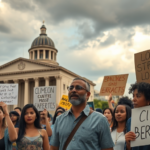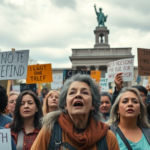San Francisco Parents Revolt Against Latest Equity Plan
In a swift backlash from parents in San Francisco, the city’s Unified School District recently faced significant opposition to its proposed “Grading for Equity” plan. This initiative was intended to close the racial performance gap in education by implementing more lenient grading practices. However, within 48 hours of its introduction, public discontent—amplified through social media—resulted in the quick termination of the proposal, showcasing the complex balance between progressive policies and public acceptance.
The “Grading for Equity” Proposal
The “Grading for Equity” strategy was modeled after similar approaches in the San Leandro Unified School District. San Leandro’s system allowed students scoring as low as 80 to receive an A, and those with a score of 21 to pass with a D. By permitting extensions on class deadlines and multiple test retakes, the plan aimed to foster academic success across different racial groups. However, many San Francisco parents perceived these measures as lowering academic standards, ultimately defeating the purpose of equitable education.
Community Discontent and Swift Decision-making
The immediate and robust backlash highlights a significant pushback against measures perceived as excessively progressive. Outrage from parents, expressed vehemently over social media platforms, emphasized a disconnect between proposed policies and community expectations. As one parent, Karen Walters, expressed, “Equity should lift all students, but this feels like it’s just lowering the bar for everyone. Our children deserve better.”
This rapid public dissent prompted San Francisco’s Superintendent, Maria Su, to announce the withdrawal of the grading strategy. In her statement, Su emphasized the need for “proper community engagement,” signaling the administration’s willingness to recalibrate its approach to meet community needs without sacrificing educational standards.
California’s Progressive Landscape
California has long been recognized as a leader in progressive policies, often setting precedents for other states. The state’s initiatives, such as banning gas-powered vehicles and positioning itself as a sanctuary for transgender youth, underscore its ambition to lead in social justice reforms. Yet, as evidenced by San Francisco’s parents, even in typically liberal areas, there exists a threshold for what residents consider acceptable change.
Historical examples further illustrate this moderation in public opinion. In 2020, despite national movements toward racial equity, California voters rejected affirmative action in a statewide referendum. Additionally, in 2022, three San Francisco school board members were recalled after moving to rename schools and eliminate competitive admissions, actions viewed by many as overstepping.
Impact on San Francisco Community
For the residents of San Francisco, especially parents concerned with educational outcomes, the rejection of the “Grading for Equity” proposal is a testament to the community’s influence on policy. It reflects a demand for more tailored approaches that actively engage local voices in policy-making. Community member Tony Ruiz, a father of two, notes, “Education is a shared responsibility. While we support efforts to address inequities, solutions shouldn’t compromise the quality of education our kids receive.”
The issue also raises broader questions about how California’s policies could impact other regions. If the state acts as a laboratory for progressive ideas, as some suggest, the reception of these ideas in San Francisco could guide their adaptation in other states, fostering a nationwide dialogue on balancing innovation with practicality in educational reforms.
The Path Forward
Looking ahead, the San Francisco Unified School District’s experience underscores the importance of maintaining a dialogue with residents to ensure alignment between policy intention and community interest. As Superintendent Su suggested, future endeavors will focus on engaging the public meaningfully before implementation, potentially setting a new standard for how educational reforms are approached in urban settings.
The debate over educational strategies in San Francisco remains an emblematic case of the modern challenges cities face when negotiating progressive ambition with diverse public perspectives. As the community moves forward, its residents and officials alike will have the opportunity to contribute to more inclusive and effective educational policies.
For those seeking further information, the school district has announced it will host community forums in the coming months, welcoming feedback on alternative strategies and providing resources on educational reforms. Residents are encouraged to participate actively in shaping the future of education in San Francisco, ensuring that the voices of the community drive the decision-making process.
In the ever-evolving landscape of educational policy, San Francisco remains a focal point of discussion, where innovation and public sentiment continue to intersect, ultimately influencing broader national conversations on how best to serve students of all backgrounds.







